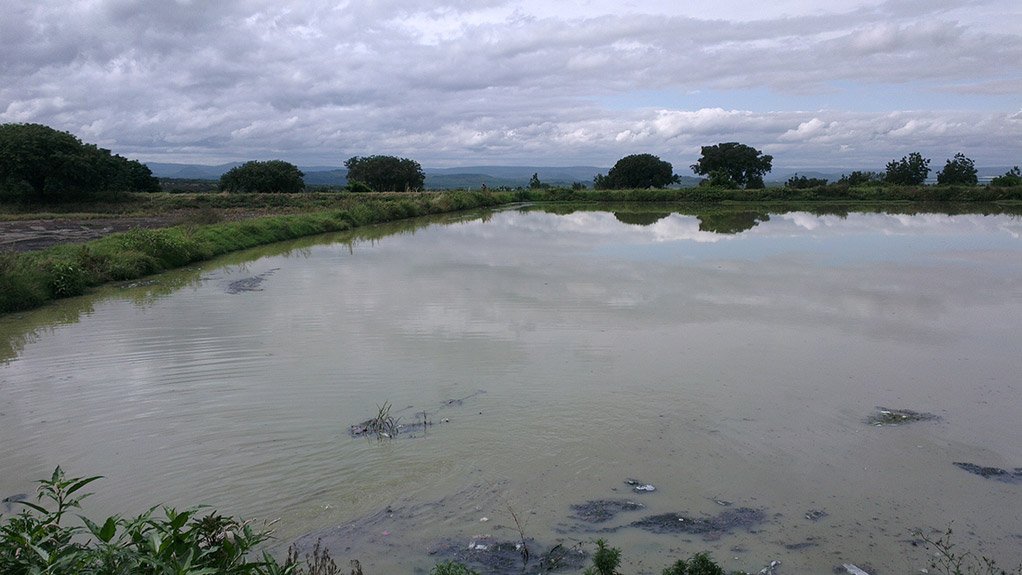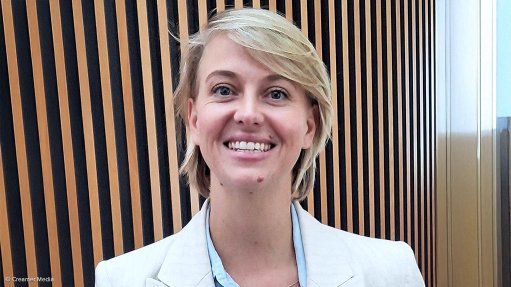S Africa wastewater facilities in disrepair


WASTEWATER South Africa can increase the amount of wastewater treated, to boost water supply
Half of South Africa’s water infrastructure is in disrepair and it will take significant financial investment, and political will, to restore it, according to the Institute for Security Studies (ISS).
“Our research indicates that what is needed is investment in basic infrastructure, such as fixing leaky pipes and wastewater treatment facilities. South Africa has built this infrastructure once, now it needs to do maintenance. Moreover, training people to do these jobs would also address unemployment in the country,” saysISS senior researcher Zachary Donnenfeld.
The ISS report, ‘A delicate balance: water scarcity in South Africa’ – compiled in partnership with the Water Research Commission (WRC) – indicates that more than two-thirds of the wastewater treatment facilities examined did not meet the minimum quality-control standards.
The ‘Green Drop’ report of 2014, the most recent in the series by the Department of Water and Sanitation (DWS), also concluded that about 25% of South Africa’s wastewater treatment facilities are in a ‘critical state’ – defined as needing an urgent intervention – while about another 25% are defined as ‘high risk’ in terms of disrepair.
Donnenfeld indicates that South Africa only treats about 50% of its wastewater, while similarly arid Israel treats about 90%. Increasing the amount of wastewater treated would significantly boost water supply in the country, he adds.
He says the DWS ‘War on Leaks’ campaign, which was not fully implemented, could have resulted in 15 000 plumbers having been trained to address the multiple water management problems.
Donnenfeld believes that South Africa needs a coordinated approach to water management, across all three tiers of government, as well as civil society and individual residents; government can invest in bulk water infrastructure while provincial and municipal governments can also contribute more in managing water resources and infrastructure.
“Desalination could play a role in large coastal metropolitan areas, such as Cape Town and Durban, but it is going to be part of a short-term solution and has high cost implications. In my view, it is much easier to fix leaky pipes and treatment plants than to build a desalination plant.”
Donnenfeld tells Engineering News that the ISS is expecting to have a closed-door roundtable session with stakeholders, such as the WRC, DWS, the Department of Agriculture, Forestry and Fisheries, as well as the Council for Scientific and Industrial Research, to improve collaboration with the private sector to find solutions to the water problems.
Overexploitation
The ISS report highlights that, when water resources are overexploited for a prolonged period, it becomes increasingly difficult for the water system to efficiently dilute those particulates and regenerate itself.
Donnenfeld explains that, when effluent discharges occur downstream to the point where water is extracted for human consumption and there is insufficient volumes of water in the river to dilute the chemicals and microbials present in the raw sewage, the ecosystem can begin to deteriorate.
“This imbalance between effluent discharge and river flows can manifest as water temperature increases, and cause higher concentrations of chemicals and microbials, or changes in dissolved oxygen.”
When the ability of a river to effectively absorb potentially harmful particulates is diminished, there are substantial consequences for human development, including an increased risk of contracting waterborne diseases, he adds.
Failure to address South Africa’s existing wastewater-treatment infrastructure could have devastating consequences for people, the environment and the economy,” Donnenfeld concludes.
Article Enquiry
Email Article
Save Article
Feedback
To advertise email advertising@creamermedia.co.za or click here
Announcements
What's On
Subscribe to improve your user experience...
Option 1 (equivalent of R125 a month):
Receive a weekly copy of Creamer Media's Engineering News & Mining Weekly magazine
(print copy for those in South Africa and e-magazine for those outside of South Africa)
Receive daily email newsletters
Access to full search results
Access archive of magazine back copies
Access to Projects in Progress
Access to ONE Research Report of your choice in PDF format
Option 2 (equivalent of R375 a month):
All benefits from Option 1
PLUS
Access to Creamer Media's Research Channel Africa for ALL Research Reports, in PDF format, on various industrial and mining sectors
including Electricity; Water; Energy Transition; Hydrogen; Roads, Rail and Ports; Coal; Gold; Platinum; Battery Metals; etc.
Already a subscriber?
Forgotten your password?
Receive weekly copy of Creamer Media's Engineering News & Mining Weekly magazine (print copy for those in South Africa and e-magazine for those outside of South Africa)
➕
Recieve daily email newsletters
➕
Access to full search results
➕
Access archive of magazine back copies
➕
Access to Projects in Progress
➕
Access to ONE Research Report of your choice in PDF format
RESEARCH CHANNEL AFRICA
R4500 (equivalent of R375 a month)
SUBSCRIBEAll benefits from Option 1
➕
Access to Creamer Media's Research Channel Africa for ALL Research Reports on various industrial and mining sectors, in PDF format, including on:
Electricity
➕
Water
➕
Energy Transition
➕
Hydrogen
➕
Roads, Rail and Ports
➕
Coal
➕
Gold
➕
Platinum
➕
Battery Metals
➕
etc.
Receive all benefits from Option 1 or Option 2 delivered to numerous people at your company
➕
Multiple User names and Passwords for simultaneous log-ins
➕
Intranet integration access to all in your organisation


















